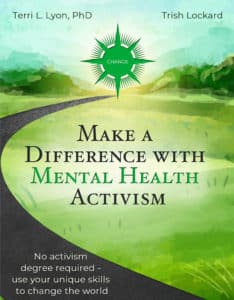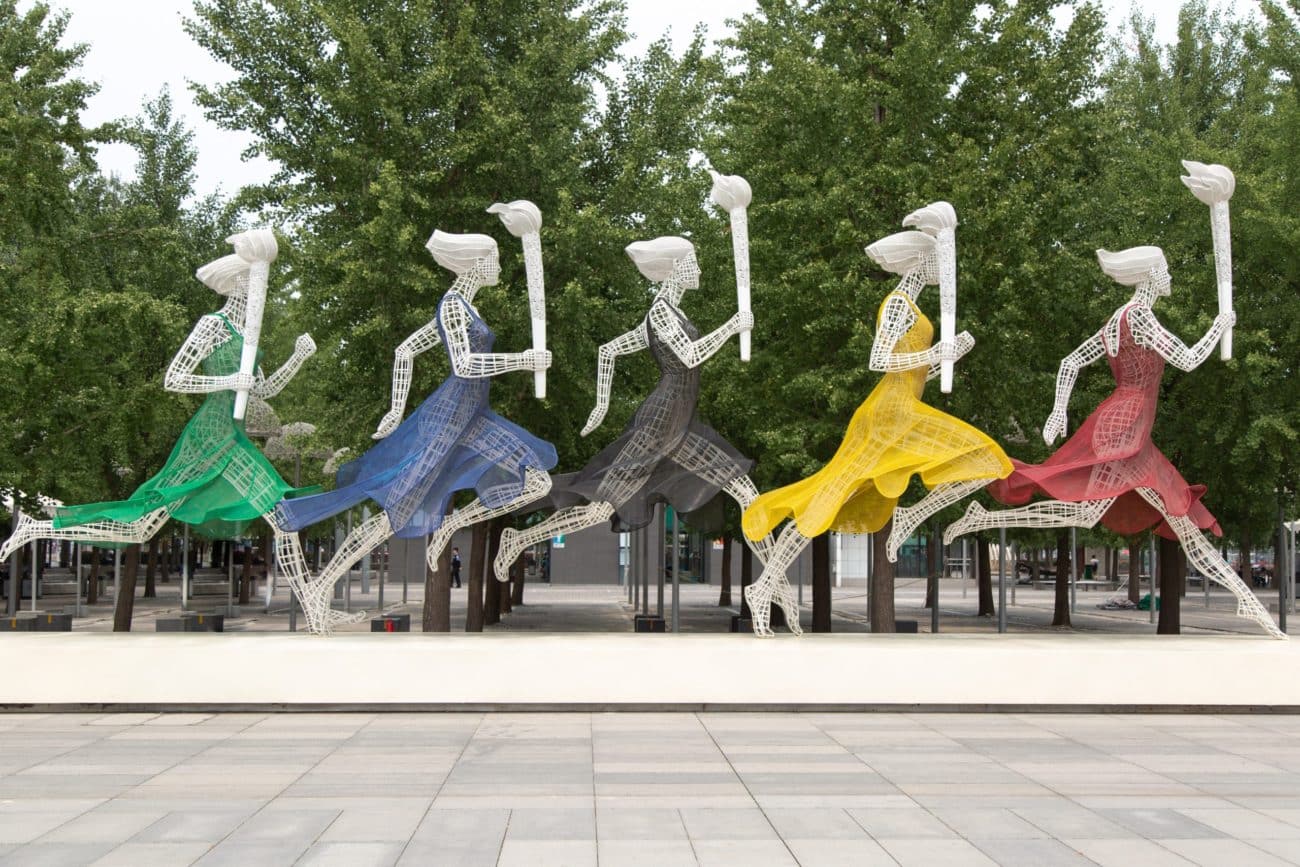- The Ultimate Guide to Journaling: How To Teach Expressive Writing - June 13, 2022
- Journaling: How To Use Writing To Support Your Mental Health - May 27, 2022
- How To Honor National Mental Illness Awareness Month With Action - October 3, 2021
Last Updated on October 23, 2024
The Olympics Opens the Door to Much-needed Athlete Mental Health Conversation
Many factors have set it apart and made it an Olympics like no other. For starters, the 2020 Games happened in 2021—there’s your first clue something changed. (No, it is not the first time the Games were canceled, but historically, cancelations have been due to world war.) And there were no spectators. That is a first, a painful reminder that COVID-19 continues to ravage the globe.
But still, we watched. And cheered. Humans love their sports: We play for fun, comradery, exercise, physical health, and stress release. We watch for entertainment, recreation, relaxation, and community. Big athletes earn big money. And they make big money for owners and sponsors.
Athlete Mental Health: Illness Hiding in the Shadows
Historically, teams, owners, and sponsors had only to worry about an athlete succumbing to physical injury. An injured athlete is a money-losing athlete. But a different barrier to performance, mostly undiscussed in the past, has become a source of headline news—and an opportunity to make a difference in the conversation surrounding athlete mental health.
A flood of stories about the mental health struggles of high-profile sports figures has dominated sports programs, news channels, podcasts, and journalism through much of 2021. Professional and Olympics-bound athletes spoke out about their mental health diagnoses—demonstrating enormous bravery and starting conversations about mental illness around the world. Swimmer extraordinaire Michael Phelps, holder of twenty-eight Olympic medals, brought the subject into the spotlight during the 2016 Games, opening the door a crack. But others have burst through this year. Here are just a few.
Simone Biles
The world’s number one gymnast, Simone Biles, 24, retreated from individual and team Olympic competition when mental health challenges became more than she could bear. Conversations around Biles’s decision received nearly as much air time as the gymnastics competition itself. Update: In 2024, Simone Biles received multiple gold medals at the Paris Olympics.
Noah Lyles
Bronze-medal-winning sprinter Noah Lyles, 24, has been vocal about making mental health part of his overall health regimen.
“Mental health is just a part of life. Just like the reason you go to a doctor is to make sure your body is OK, the reason you go to a therapist or you talk to somebody is to make sure that your mind is OK.”
Simone Manuel
Olympic gold-medal-winning swimmer Simone Manuel, 24, spoke openly about taking a break after being diagnosed with overtraining syndrome this year, as she experienced depression, anxiety, insomnia, and loss of appetite.
The conversation started in earnest a few months before the Olympic Games, however.
Naomi Osaka
During the 2021 French Open tennis championship, the world’s number two female player withdrew from the competition after facing backlash over her request to skip post-match press conferences, which she found too emotionally stressful. French Open officials did themselves no favors with their harsh, unempathetic comments and punitive fines against Osaka. The following month, Wimbledon representatives, having learned from those mistakes, took a kinder tone toward Osaka, welcoming her on her terms to The Championships. But Osaka still hadn’t fully recovered from the French Open experience and withdrew from the Grand Slam tournament.
Nike, Osaka’s sponsor, came out in support of the tennis star following her decision to withdraw from the French Open. The sports apparel giant, which signed a sponsorship deal with Osaka in 2019, publicly applauded the athlete in a statement the following Monday for speaking honestly about her struggle with depression.
“Our thoughts are with Naomi.” Nike said. “We support her and recognize her courage in sharing her own mental health experience.”
The company aired two commercials during the Olympics that asked that athletes’ mental health be respected. Some cynics say Nike is simply trying to capitalize on Osaka’s struggle. It might be. Regardless of Nike’s motives, the company is speaking out and people are listening.
In an interview with NBC’s Lester Holt, Olympic swimming legend Michael Phelps congratulated Osaka and Biles specifically on their bravery and expressed his desire that such high-profile examples of mental health disorders will result in worldwide conversation and understanding.
Let’s hope Michael is right!
Consequences of the Athletic Lifestyle
Don’t let the huge paydays sports figures make deceive you into thinking their lives are perfect. The lifestyle of an athlete presents enormous difficulties. From training, through game day, and into early retirement from a career, there are relentless, intense challenges.
- Taxing training
- Dieting
- Travel
- Pressure to perform
- Stressors of the sport, physical and mental
- Transitioning into retirement
There’s a certain image of the star athlete as a performance machine who has it all. But the reality of being engaged in a job marked by never-ending preparation and competition and the reminder to not let down teammates and sponsors makes athletes prime targets for the harshest stressors and burnout.
Stigma Surrounding Mental Health
Everyone with a mental health diagnosis—all forty-eight million-plus of us—must deal with the stigma of our disorders. Despite all the work that has been done to raise awareness and acceptance of mental health issues by organizations such as the National Alliance on Mental Health (NAMI) and Mental Health America (MHA), stigma is still one of the biggest barriers to helping those with a mental illness.
Stigma a Challenge for Athlete Mental Health
For athletes, this stigma is particularly demoralizing and scary. The professional sports world is not always accepting of mental health struggles. Athletes who speak openly about their mental health face damaging their reputations and fear losing their ability to continue to play the sport they love. Mental health stigma means that athletes don’t get the support they need and risk suffering dire consequences.
The list of professional and college athletes who died by suicide after years of suffering with mental illness behind closed doors is a long one. For example, NHL player Rick Rypien, who struggled with clinical depression for many years, then took his life on August 15, 2011, at the young age of twenty-seven.
The Courage to Be Vulnerable
Honesty about mental health can be a tricky topic, especially within the world of professional sports. In recent years, we saw athletes discuss physical and mental health challenges as they neared the end of their careers or even after retirement. That wasn’t enough to stimulate lasting, meaningful conversation. To see athletes who are at the highest levels of their chosen sport talk honestly about mental illness is a game-changer, so to speak.
Let Them Talk. We Must Listen.
Strong, tough athletes are not immune to mental health struggles. We must do for these courageous athletes what we must do for everyone who speaks out about mental health struggles.
Mental Health America Guidelines
Mental Health America offers this guidance about what to do when someone—anyone—opens up to you about their mental health issues.
- Listen. Let them finish their sentences and complete thoughts without interrupting. After they have finished you can respond.
- Let them know if you understand. It helps a lot for someone to know they aren’t alone.
- Avoid being judgmental. Don’t tell them they are being weird or crazy; it’s not helpful at all.
- Take them seriously. Try not to respond with statements that minimize how they are feeling.
- Make yourself available to talk again if needed. For instance, “I’m here for you if you need to talk, but my parents don’t let me use the phone after 9 on school nights, so call before then.
- Don’t turn what you’ve been told into gossip
- If you don’t understand, do some research and learn about what you’ve been told. Make sure that your information is coming from reliable sources like government agencies and health organizations.
Talk About Mental Illness
We must become comfortable with conversations about mental illness. All of us. Since the start of the COVID-19 pandemic, Americans of all ages and walks of life are expressing a greater willingness to talk about and seek help for their mental health challenges.
Make a Difference With Mental Health Activism
In Make a Difference With Mental Health Activism, written with Dr. Terri Lyon, we profile mental health activists—our Activists in Action— who have found unique ways to stand up for mental health and get the conversation going. And one word of advice came from them again and again: Listen.
I ask questions and build trust by listening without judgment. Nothing says “I am listening” like silence.—Christinea Beane, jewelry maker
Be kind and listen. Being a part of the conversation is already helping more than you know! —Christina Wolfgram, podcaster/comedian
Learn to listen, treat them with respect, try to build trust, and when possible, become a partner—make sure they are part of the solution and not seen as a problem that needs to be fixed.—Pete Earley, author/journalist
As for me, I’m appreciative for these high-profile individuals speaking out about their mental health challenges. Because of who they are, their words and actions receive global news coverage. Their anxiety or depression isn’t worse than mine or yours. Their episodes of bipolar disorder mood swings aren’t any more debilitating than your daughter’s or husband’s or friend’s. But if they are willing to drop their shields and embrace their vulnerability, good for them. And good for us.
The Big Question
The big question for me is, what will come of this discussion of athlete mental health? Is openly discussing mental illness just a trendy phenomenon that will pass? Will news networks, sponsors, and the general public tire of these high-paid athletes’ mental health vulnerabilities and turn on them for not rising to the stress of competition? We mustn’t let that happen!
Thank these athletes on social media. Thank and support the sponsors; buy their products and let them know the reason for your support. Prominent voices are speaking up. Listen to them. Join them.
Your Turn

You can be an impactful activist for change for those with the lived experience of mental illness and their loved ones. Be a part of the movement with Make a Difference With Mental Health Activism: No activism degree required—use your unique skills to change the world, by Terri L Lyon and Trish Lockard.
Which of your gifts, talents, and experiences can you use to make change happen for those struggling with mental health disorders? Share your story. Listen to others. Apply your gifts. Tap into your anger. Fight stigma. Demand parity.
The time for change is now.
Watch Part 2 of Lester Holt’s Interview With Michael Phelps
Read Trish Lockard’s Series on Mental Illness
Taraji P. Henson’s Passion for How to Impact African American Mental Health
- Think the Pandemic Was Hard? Consider the Impact on Those With Mental Illness
- With Mental Illness You Won’t Get a Casserole
- Stigma: A Thorn in the Side of Mental Health Care
- 12 Creative Ways to Support Mental Health
- Realizing The Impact of Mental Illness On My Family (NAMI)
Trish’s Blog at Strike The Write Tone




An eye-opening post and on the back of a really uplifting Olimpic games. You have opened both hearts and minds with this post. thank you.
Thank you, Ellen.
Congratulations on your podium spot for this past week in Senior Salon. Your post will be shared on Monday, Aug 16th, and published at 2 am PST Vancouver BC time. Thanks for your participation. Please check out the post on the blog on Monday
On behalf of my guest blogger Trish Lockard, thank you Esme! #SeniorSalon
Pingback: Monday InLinkz Join us at 176 Senior Salon
Pingback: How to Honor Mental Illness Awareness Week with Action
Pingback: Get Started: Gabe Howard Encourages Action, Not Perfection
Pingback: Make a Difference with Mental Health Activism